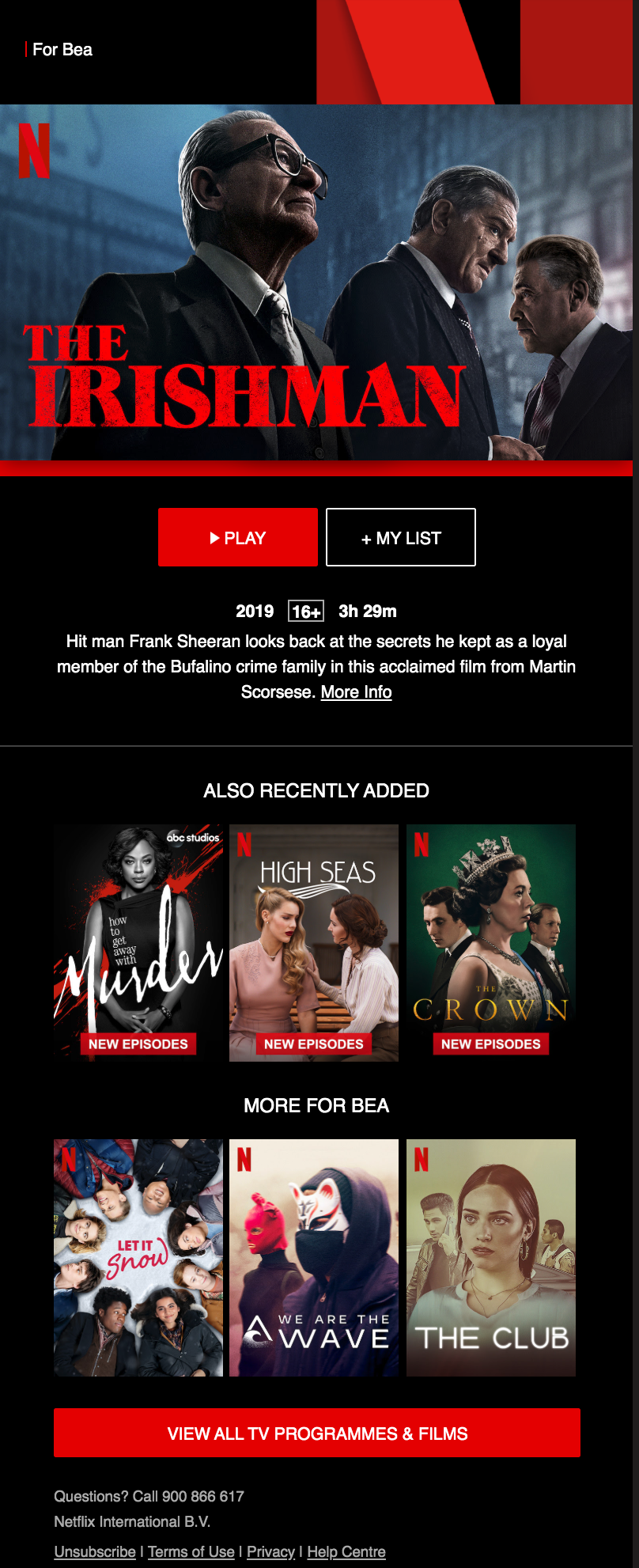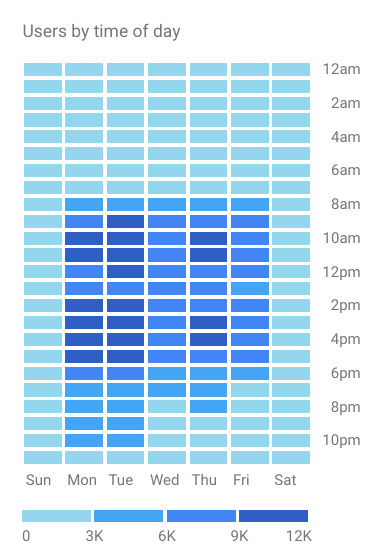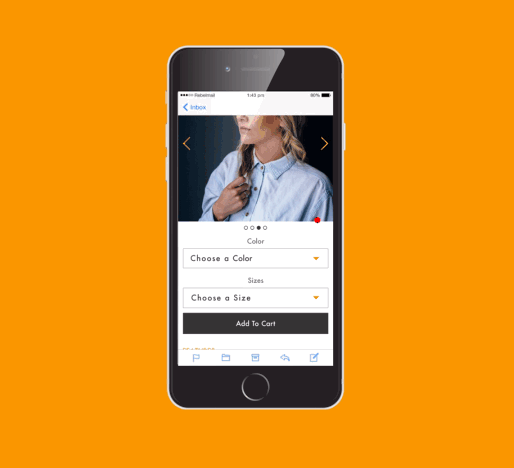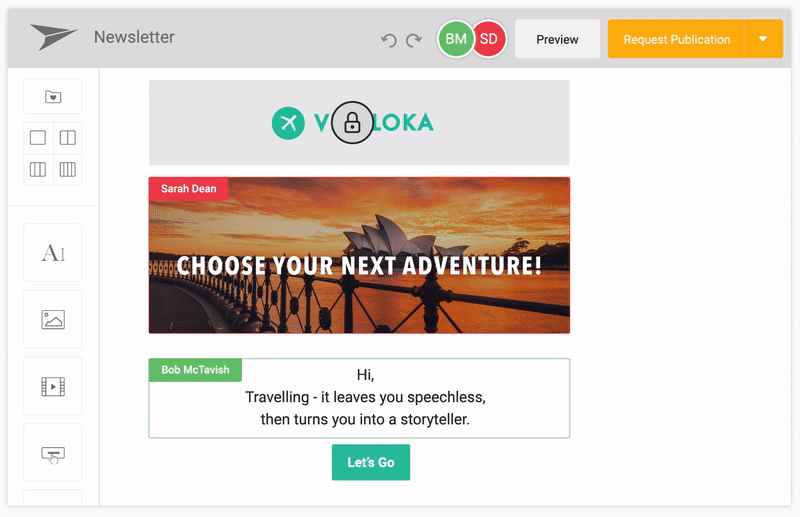Email best practices
Email marketing trends for 2020

Email best practices

Here we go again: It’s the end of the year, and it’s time to look at Email Marketing Trends for 2020.
This time, we’re about to close off a decade, and we’ve probably all been looking back at what the 2010s brought us, personally, professionally, or even musically (although some of us might want to keep that last one for our eyes only).
In the world of email, the 2010s have been a decade of great growth, with tons of innovation making email the coolest kid on the block, year after year. You might think we’re biased, but email has continued to be the best marketing channel for ROI, and is there anything cooler than that?
But enough looking back. Star Wars might be over (or is it?), but there’s still a lot for us to look forward to in 2020. Come join us as we play email gurus again, and try to decipher what the email world will have in store for us this 2020.
Surprised? We didn’t think so.
Personalization and targeted messages seem to be a constant year after year, and yet as marketing techniques develop and messages multiply, the need to send more relevant messages to grab our audience’s attention increases. At Mailjet, we still believe relevancy is one of the most powerful attributes in a marketing message, but for it to be effective it should go beyond the simple “Hey, (first name)!”
The key to effective segmentation and personalization is data, but our inability to collect it, store it and integrate it across different marketing channels is making marketers a little skeptical about one of the biggest buzzwords in the marketing world.
While in the past effective segmentation was just a nice-to-have, nowadays sending differentiated campaigns to our customer-base based on their age, gender, location or past behavior has become a must.
The same goes for personalization. For a while, personalization felt like a box that was easy to tick. Just add a first name here and there, and that was it. Now, though, personalization is so much more, with features that allow us to use contact properties and purchase data to customize big blocks within our emails, like Mailjet’s Dynamic Content blocks. Think Netflix and its personalized film recommendations, or Amazon and its cleverly-picked upselling opportunities.

But what is a great, personalized email, if it doesn’t even reach the inbox?
As email marketers, we’re used to looking at metrics such as opens, blocks or bounces to monitor our deliverability, trying to assess how healthy our email lists are or how well we’re applying email best practices based on past performance. We decide to segment out inactive users when we see our open rates fall or change our templates when we see big images have made our amazing email land in the spam folder.
But what if instead of reacting we could start anticipating?
Email marketers are increasingly citing deliverability as one of their main barriers to effective marketing, with 37% of marketers citing it as a top concern in 2019. And while some email players already offer tools that provide data and advice on the performance of an email campaign, their use to prevent deliverability issues is still not fully adopted.
In 2020, the wider adoption of these features will allow marketers to change the way they think about email and email deliverability. Tools like email validations will enable senders to clean their contact lists before sending and to better protect their sender reputation, and inbox placement will allow users to diagnose deliverability issues and optimize their emails before pressing Send.
A big part of an email’s success depends on when it’s read by its recipient. We all know this already, which is why we all keep trying to figure out what the best time to send a newsletter is. Send me an email about Starbucks Christmas’ treats while I’m at the gym, and I’ll just ignore it. Tempt me while I’m out in the cold, and I’ll probably want to buy the whole store.
While we’ve been talking about automation for quite some time, 2020 will bring a whole new way of thinking about timeliness. ESPs and email innovations will continue to look for ways in which AI can help marketers crack that code.

But is there really a universal best time to send an email campaign, or does it vary from recipient to recipient? What about getting emails into a contact’s inbox precisely when they are most likely to read it?
Machine learning will help ESPs offer new tools that will automatically optimize sending time to make sure your emails reach all the different inboxes at exactly the right time. No more guessing.
Once you’ve cracked the right time to get those amazing emails into the inbox, the fight will move onto a different, more complex battlefield. Shining through in your contacts’ inbox is hard, and going from an open to a conversion requires a lot more creativity now than it did before.
So how do you go from someone reading your campaign to actually clicking-through? Increasing email shopability will be key to push conversion even further. The use of smart design and interactive features that guide readers to your CTAs and allow them to interact with the content will be essential.
Sending interactive emails that enable the user to convert without leaving the inbox has been a possibility for quite some time, but it’s far from being the norm. Interactivity allows users to start their purchase directly in the inbox, eliminating the friction between email and onsite conversion. To make this easier, email developers can leverage tools like Email Markup or AMP4Email.

According to Litmus, email attention span surged by 21% in 2019, with mobile access playing a big role in that increase. Nowadays, more than 50% of emails are read on mobile, so sending responsive emails is a must to be able to provide a seamless experience and maximize your ROI.
Templates need to be designed with a mobile-first approach, regardless of whether you code them or build them using an email editor – something that is increasingly challenging with the range of devices and screen sizes available today. Luckily, using a responsive drag & drop responsive email builder like Mailjet’s Email Editor can help.
For email developers, it doesn’t get easier than MJML, our open source markup language. MJML is responsive by default and allows you to seamlessly import your templates into Mailjet or download them in HTML, knowing that your design will look great on any device.
In 2019, we’ve seen companies look for better ways to control their brand messages. In-housing has risen as a trend, with companies moving marketing functions in-house to ensure better brand alignment and consistency. However, this has also highlighted a need for improved processes and correct tools to enable these teams to work together more effectively.
As brands continue to develop their omnichannel marketing strategies, marketers will need to look for better ways to collaborate and ensure consistency in their messages across different channels.
For email, this will mean enabling everyone in the team to be involved in the creation of different campaigns in a way that allows brands to reduce iterations and control the final product. Fine-tuning how teams collaborate internally to avoid miscommunication or mistakes and finding the right collaborative tools to make this easier will continue to be crucial for companies.
To help expanding marketing departments, Mailjet has created an Email Collaboration Toolkit, a set of features that enable multiple users to manage users’ roles and permissions, to work together on their templates in real time and to easily track changes to protect their brand.

While in Europe we seem to have put the hecticness of GDPR behind us, data protection is far from being a thing of the past. In fact, in January 2020 the California Consumer Privacy Act will come into effect, forcing those in the US to embrace similar data privacy standards as those that already apply in the EU.
During the past few years, we’ve seen an increase in user interest regarding the way companies use and protect their personal data, and brands will have to continue working towards becoming more savvy and vigilant to maintain their customers’ trust.
In fact, with digital brands operating everywhere, complying with the strictest data privacy regulations has become a must if companies still want to be able to maintain a distributed customer-base.
This is something we know well at Mailjet. While this has been a year of many changes, our commitment to data privacy and security hasn’t changed. In fact, we’ve worked to ensure compliance with the California Consumer Privacy Act, in addition to our existing compliance with GDPR, and will continue to offer the highest security standards for our clients’ personal data.
All in all, during 2020 companies will work on becoming smarter and more effective in their email communications.
Marketers will need to work on sending truly relevant emails that offer personalized content and land in the users’ inbox at the right time. Developing ways in which users can start the conversion process without leaving their emails will help brands to maximize email ROI.
Internally, companies will need to find process and tools to enable them to collaborate with their growing teams and external agencies. Brands will also need to be vigilant, to ensure they adapt quickly to any changes in data privacy regulations or data security threats.
As you probably know, Mailjet was acquired by Mailgun in October 2019. 2020 will be an exciting year for both brands, with new tools coming to help our users send better email.
At Mailjet, we’re excited to be able to offer our customers some of these new features during the new year, including Inbox Placement, email validations and some advanced solutions to optimize sending time.
What email marketing trends will you be focusing on during 2020? Tell us all about your own #EmailTrends on Twitter!